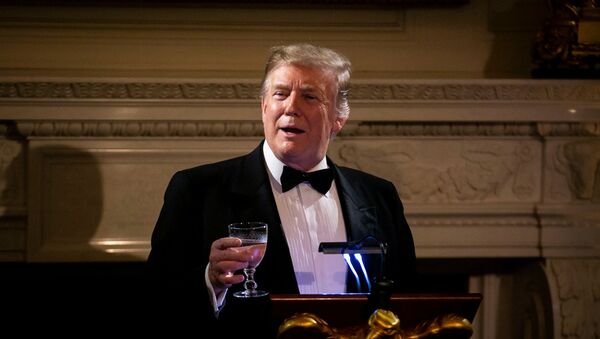When leaving the White House for the G7 summit in France, Trump told reporters that he has "the absolute right to do that, but we'll see how it goes." He later explained that he was referring to the 1977 International Emergency Economic Powers Act (IEEPA) in his Twitter.
For all of the Fake News Reporters that don’t have a clue as to what the law is relative to Presidential powers, China, etc., try looking at the Emergency Economic Powers Act of 1977. Case closed!
— Donald J. Trump (@realDonaldTrump) August 24, 2019
The IEEPA, passed in the wake of Watergate and Vietnam, gives Trump "broad authority to regulate a variety of economic transactions following a declaration of national emergency," according to an analysis by the CRS, to “deal with any unusual and extraordinary threat....to the national security, foreign policy, or economy of the United States.”
Under the IEEPA, the President has to consult with Congress before invoking his authority and, after declaring a national emergency, send a report to Congress explaining why.
54 of the national emergencies were justified with the IEEPA since it came into effect, including 29 ongoing ones. In the first use of the IEEPA, during the Iran hostage crisis in 1979, President Jimmy Carter imposed trade sanctions against Iran, freezing Iranian assets in the US. Trump also invoked the authority of the IEEPA earlier this year when he was prepared to impose tariffs on all Mexican imports after saying illegal immigration on the US southern border had become an emergency.


